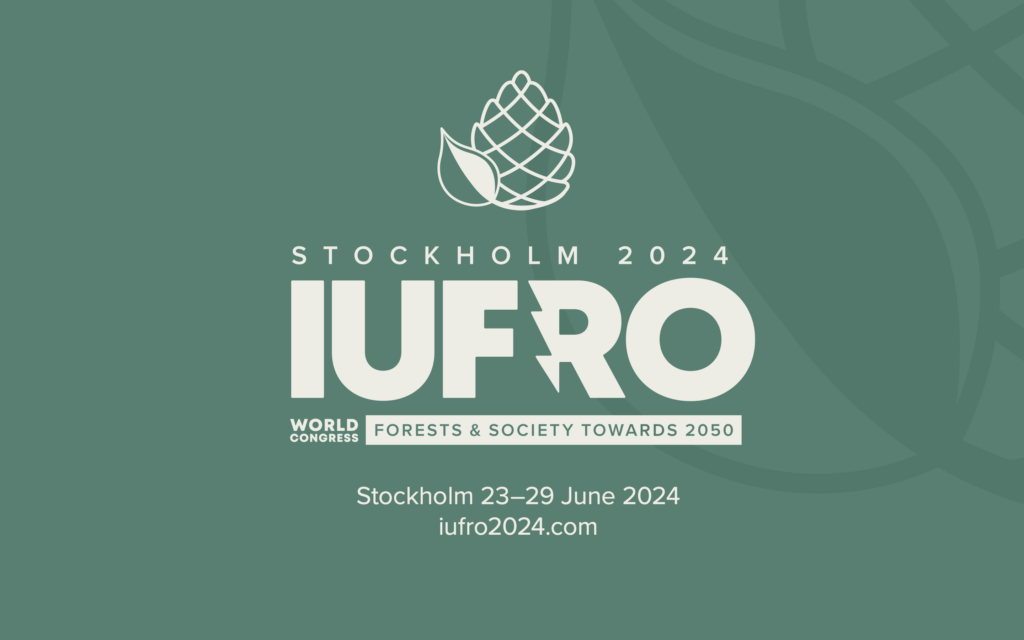
Jana Holz spricht am 27. Juni auf dem World Congress der International Union of Forest Research Organization (IUFRO) in Stockholm zu „Human-Forest Relationship – Ambiguity in ‚taking care of the forest’” gemeinsam mit Jaana Laine (LUT University, Finnland) und Ronja Mikoleit (Stabsstelle Gesellschaftlicher Wandel der FVA und Uni Freiburg).
Abstract
The attitudes of humans toward forests can be defined as human-forest relationships, combining historical and modern aspects. These relationships affect global, societal, and individual forest-related aims and practices. This session discusses the importance of diverse human-forest relationships for sustainable future societies. Many people feel a strong emotional attachment being affectively connected to forests – they care for and take care of forest. Deep connections between humans and trees are expressed frequently, but often they are highly diverse, even conflictual.
Oftentimes, forests are mainly connected to timber production and rationality, but recently, ‘care’ has been identified as an important element in motivating human action regarding nature. Caring is intertwined with legal and psychological forest ownership. Besides valuing forests for their economic benefit, forest owners express both intergenerational respect and care and attach various meanings to forests as beloved places, a space for psychological shelter or an important part of their identity.
The concept of care (Tronto 1993, 2013) has circulated from feminist theory – originally connected to (domestic) care work in capitalism and gendered power roles – into different disciplinary fields. Currently, glimpses of its potential are making their way into forest-related studies. ‘Care’ encompasses diverse understandings and practices of care taking. It has developed into an “important means of understanding how people relate to the world, and the relationship between people and trees is no exception” (O’Flynn et al. 2021: 228).
Our session contributes to an exploration of the concept’s potential for understanding human-forest relationships. We invite diverse forms of engagement with the concept in relation to forests and their utilization that cover various practices of ‘taking care of the forest’ and/or ‘owning a forest’, their incorporation into culture and their embeddedness in political and institutional structures – be they conceptual or empirically grounded. Central questions for our session are: What does it mean to take care of or to own a forest, in times of climate change and multiple crises? How do people develop and maintain a caring relationship to ‘their’ forest? How is decision-making (in forestry) shaped by relational, social and emotional dimensions? What role do different understandings and practices of care and ownership play in forest conflicts? Do concepts and policies in contexts of bioeconomy, circular economy or biodiversity transform how forests are taken care of? Does a caring relationship towards forests in capitalistic societies remain principally a utopian idea? Or might forests in fact be taking care of humans?
Zum Kongress-Programm hier.

